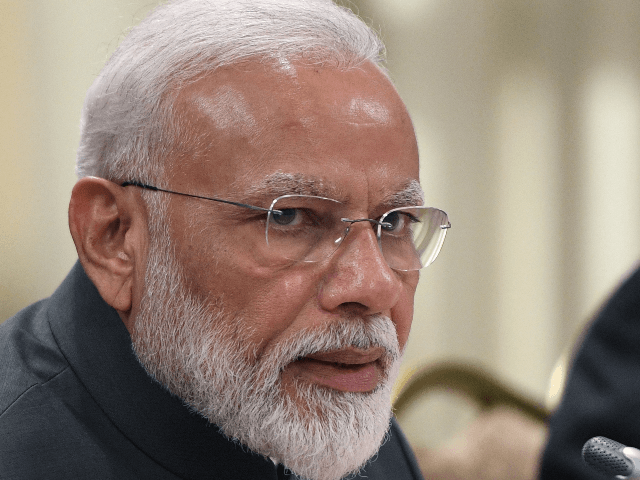India’s foreign minister arrived in Beijing on Sunday, days after New Delhi deemed Chinese Kashmir to be a territory administered by the Indian federal government.
New Delhi annexed Chinese and Pakistani Kashmir last week after stripping the portion of the Muslim-majority Himalayan region administered by India of its limited autonomy. China, India, and Pakistan have competing claims to territories in Kashmir.
On Sunday, the Hindustan Times (HT) reported that the Indian foreign minister’s two-day visit to Beijing “was finalized” before New Delhi made changes to the status of Indian Kashmir.
“Beijing is expected to raise its concerns about the situation; especially, because its ‘all weather ally’ Pakistan, already dispatched its foreign minister Shah Mehmood Qureshi last week to discuss the issue with Wang,” HT added.
Pakistan downgraded its diplomatic ties with India and expelled the Indian ambassador in Islamabad over New Delhi’s actions in Kashmir last week.
On Monday, HT added:
India and China on Monday began key day-long talks in Beijing in the backdrop of recent developments in Jammu and Kashmir with Beijing saying it is “closely following” tensions in the region and ramifications.
New Delhi on its part reiterated the consensus reached between the leadership of the two countries that bilateral differences should not become disputes.
In Monday’s conversations with his Indian counterpart S Jaishankar, Chinese Foreign Minister Wang Yi did address the India-Pakistan tensions over Kashmir.
“When it comes to the regional tensions between India and Pakistan and possible ramifications we follow these developments very closely,” Wang reportedly told Jaishankar on Monday. “We hope that India would also play a constructive role for regional peace and stability.”
Pakistan has warned that New Delhi’s decision to revoke Indian Kashmir’s autonomy could lead to another war and the “genocide” of the local Muslims.
Islamabad and New Delhi claim ownership of Kashmir in its entirety. However, a border — the Line of Control (LOC) — separates the Kashmir territories administered by India and Pakistan.
Pakistan has ceded control of some of its Kashmir lands to China. Meanwhile, India disputes China’s occupation of Kashmir territories on its side of the LOC.
Pakistan and India have fought two wars and a minor conflict over Kashmir. Despite a 2003 ceasefire, bloody clashes continue between India and Pakistan along their border in Kashmir.
China and India have also fought a war over the region.
Beijing has mainly stayed in the shadows of Kashmir disputes between Pakistan and India, providing Islamabad with military and economic support to defend its position. Beijing said it was “unacceptable” that India’s Hindu nationalist-led government rescinded New Delhi-administered Kashmir’s special autonomous status. China also opposes India’s move to declare the Kashmir lands held by Beijing to be territories administered by the Indian federal government.
On August 6, Hua Chunying, a spokesperson for China’s Foreign Ministry, declared:
China always opposes India’s inclusion of Chinese territory in the western section of the China-India boundary under its administrative jurisdiction. This position is firm and consistent and has never changed. The recent unilateral revision of domestic laws by the Indian side continues to undermine China’s territorial sovereignty, which is unacceptable and will not have any effect.
In a separate statement that day, China expressed “serious concern” about the current situation Kashmir and said, “Relevant sides need to exercise restraint and act prudently.”
Strong allies China and Pakistan have both come out against New Delhi’s move to take away Indian Kashmir’s statehood.
In 2017, China and India came close to another conflict at a point of their mutual border known as Doklam to Indians and Donglang to China.
Beijing declared the region last year an undisputed “Chinese territory,” angering New Delhi. Nevertheless, China and India held an informal summit in 2018 to discuss the military tensions the previous year.
Referring to the Indian minister’s visit to Beijing Monday, the Hindustan Times noted:
Jaishankar and Wang are expected to finalize details about President Xi Jinping’s upcoming visit to India in October for his second “informal summit” with Prime Minister, Narendra Modi; the first one in Wuhan in central China in April 2018 thawed the chill in bilateral ties after the Doklam military standoff the year before.
Tensions over Kashmir between India, Pakistan, and China remain high.

COMMENTS
Please let us know if you're having issues with commenting.